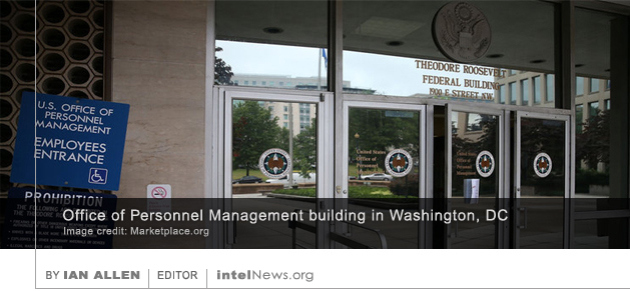5.6 million US government employee fingerprints embezzeled
A massive cyber hacking incident that compromised a United States federal database containing millions of personnel records also resulted in the theft of 5.6 million fingerprint records, American officials have said. Up to 21 million individual files were stolen in June of this year, when hackers broke into the computer system of the US Office of Personnel Management (OPM), which handles applications for security clearances for all agencies of the federal government. The breach gave the unidentified hackers access to the names and sensitive personal records of millions of Americans who have filed applications for security clearances —including intelligence officers.
Back in July, OPM officials told reporters that just over 1 million fingerprint records had been compromised by the cyber hack. However, a new statement issued by the White House last weeksaid that the actual number of stolen fingerprints from the OPM database was closer to 5.6 million. In a subsequent statement, the OPM said there was little that the hackers could do with the fingerprint records, and that the potential for exploitation was “currently limited”. But it added that, as technology continued to be developed, the risk of abuse of the stolen fingerprint records could increase. Therefore, an interagency working group would be put together to “review the potential ways adversaries could misuse fingerprint data now and in the future”, the OPM statement said. It added that the group would be staffed with fingerprint specialists for the Federal Bureau of Investigation, the Department of Defense and the Department of Homeland Security.
External American intelligence agencies, which typically send their officers abroad posing as diplomats, and sometimes under cover identities, are reportedly concerned that certain foreign counterintelligence agencies will be able to use the stolen fingerprints to identify the true identities or professional background of US government employees stationed abroad.
► Author: Ian Allen | Date: 29 September 2015

